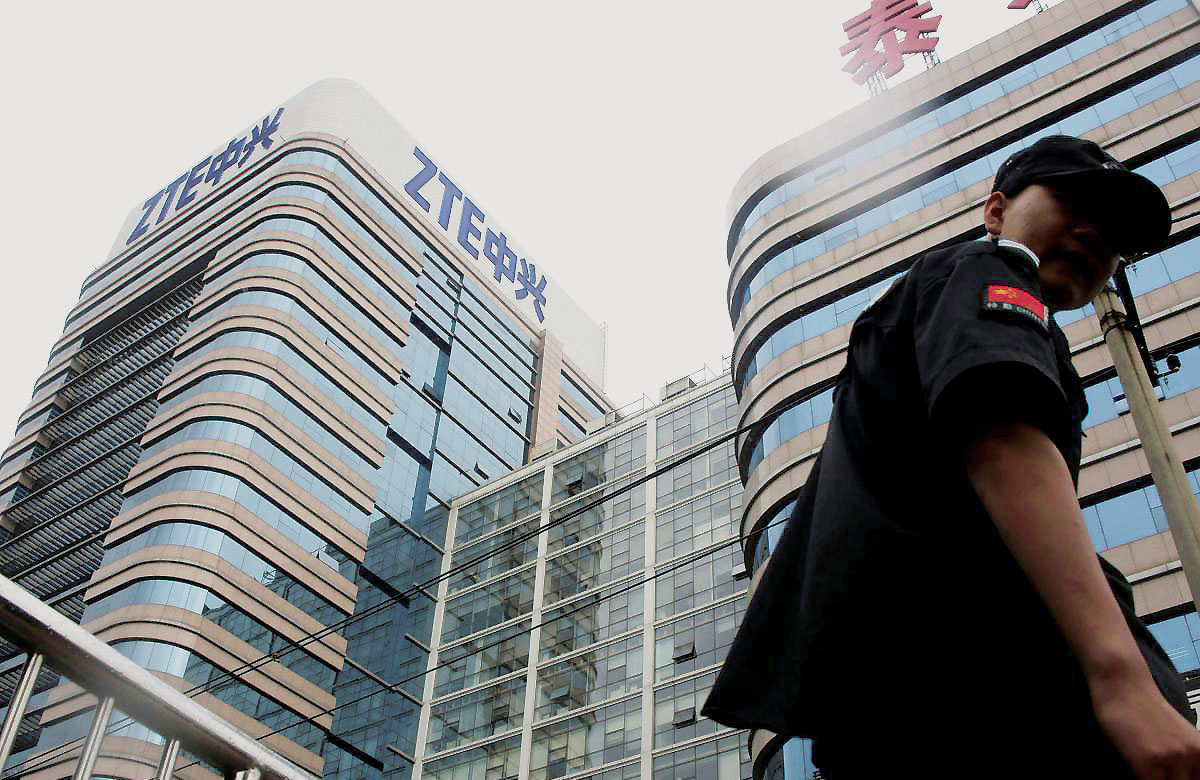

The US trade ban on Chinese telecom equipment maker ZTE wreaked havoc at wireless carriers in Europe and South Asia and forced operators worldwide to consider broadening their supply networks, industry sources said.
Disruptions at Russian and emerging markets mobile operator Veon, one of the world’s 10 largest mobile firms by number of customers, illustrate the effects of the US ban, which lasted three months, ending when the US Commerce Department lifted the order on last Friday.
Veon was especially hard hit, suffering launch delays at its Italian joint venture and in Ukraine, near network outages in Bangladesh, and lesser disruptions at its Pakistan operations, sources at the Amsterdam-based operator said.
“Veon has decided to second source everything,” a person familiar with the strategy shift at Veon said of moves to reduce dependence on any one supplier of network gear. “We don’t want the company to be in the same position we were in when the US (ban on ZTE) came out: It caused massive problems in three or four of our markets,” the source said.
Perhaps the biggest setback was for Italian mobile operator Wind Tre, which had a 1 billion euro ($1.17 billion) contract with ZTE to upgrade radio equipment.
The ban forced ZTE to abandon more than half of the remainder of the contract, and Wind Tre will use gear from network supplier Ericsson instead, sources said. The original deal had marked ZTE’s biggest breakthrough into the European market, which has been dominated by regional players such as Ericsson of Sweden and Nokia of Finland.
Ericsson’s win with Wind Tre could be a sign of renewed momentum for the Swedish equipment supplier, which has struggled in recent years with slowing growth, restructuring and big job cuts.
One industry expert said operators may start using multiple vendors to avoid being stuck with a supplier that comes under trade sanctions or suffers other extended disruptions.
“Many supplier strategies will be reviewed,” said Bengt Nordstrom, a telecoms industry consultant based in Sweden who advises operators on equipment purchasing strategies. “Wind Tre was the first example so far. This is a wake-up call to the industry that if you have a single vendor dominating your network supply chain — ZTE for now, but other vendors eventually — you are leaving yourself exposed.”
NETWORK FALLOUT: Veon’s Ukrainian unit, Kyivstar, the largest mobile operator in that country, postponed its introduction of 4G mobile services in April because of the ZTE ban, according to two sources at Veon and one at ZTE.
“The 4G launch had to actually be put on hold, so Kyivstar lost ground to competitors because of our obligations to comply with the denial order,” said one of the sources, a senior executive at Veon.
Kyivstar’s two main rivals are Vodafone Ukraine, owned by Russia’s MTS/Sistema and UK-based global operator Vodafone ; and Lifecell, a unit of Turkcell of Turkey.
Kyivstar launched its 4G service in early July, more than two months behind schedule, by using a part of the network that didn’t depend on ZTE, one source said.
Network blackouts were narrowly averted at Veon’s Bangalink unit in Bangladesh.
“There was an issue with Bangladeshi network upgrades that really went down to the wire,” the source said. “Only at the 11th hour did the US allow some temporary relief from the order.”
Global telecoms trade group GSMA negotiated a one-month reprieve with the Commerce Department that allowed Bangalink and other ZTE customers to engage in “essential transactions” that allowed existing networks and handsets to keep working, the group said.
Veon has maintained strict compliance with the ZTE ban in all markets, two company sources said. All ZTE equipment shipped to Veon’s subsidiaries after the US order was returned. This included both network hardware and ZTE mobile handsets, a Veon executive at its Russian operating subsidiary said.
Spanish telecom operator Telefonica relied on technical workarounds during the ban, but still cancelled some ZTE contracts, a separate source with knowledge of the relationship between the firms said. — Reuters
Eric Auchard
Oman Observer is now on the WhatsApp channel. Click here



